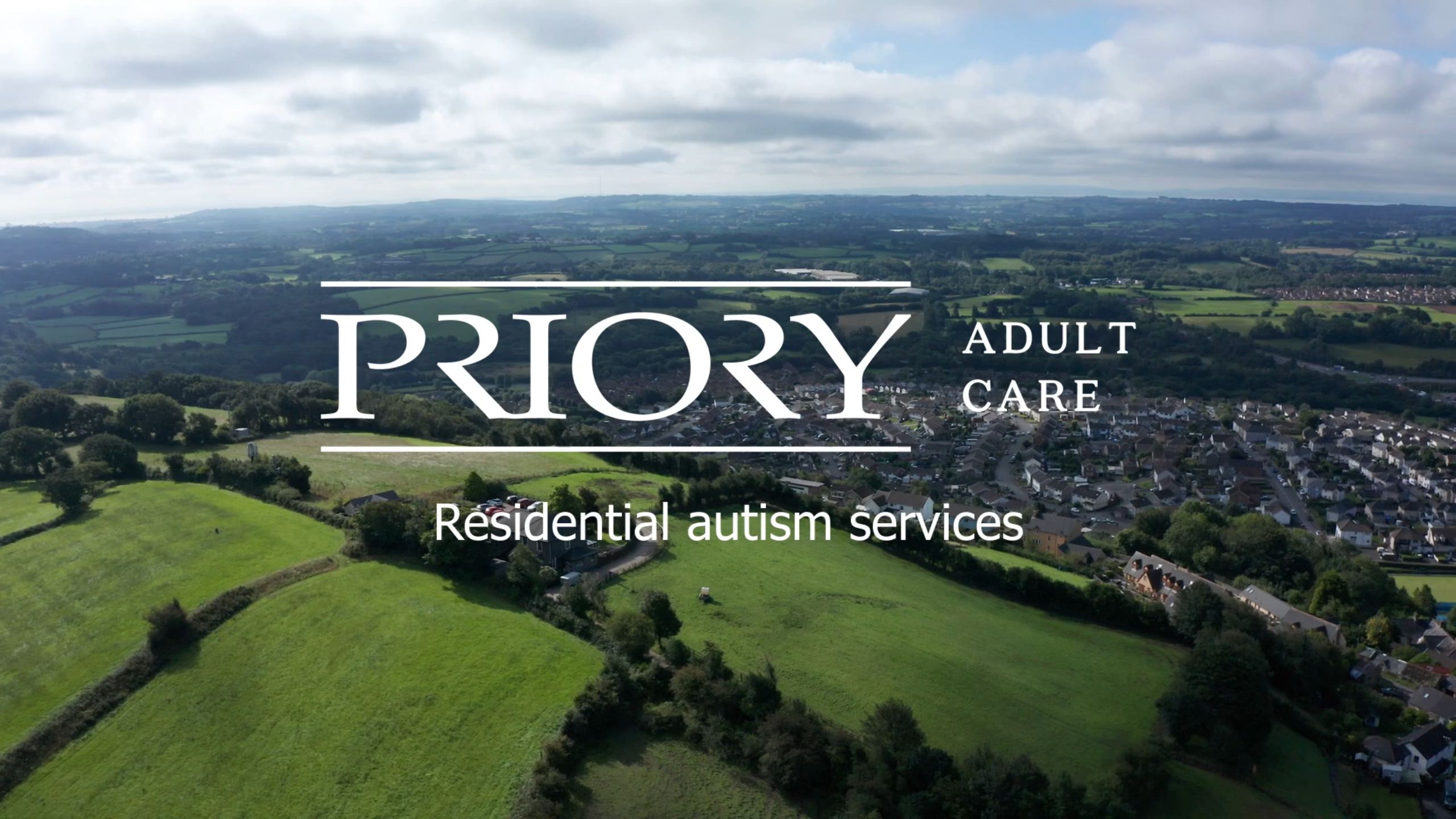About this location
The Oaks is located in Walton-Le-Dale, a suburb of Preston. It offers residential support for six adult males and females who are autistic people or have a learning disability. We are at the end of a cul-de-sac in a quiet pleasant neighbourhood.
Our team are dedicated to supporting our residents to have a fulfilled and active life, encouraging dreams, goals and aspirations. We have excellent relationships within our local community which supports our residents in being able to take part in community living.
We can also support those who have:
- Difficulties with communication
- Mild to moderate behaviours that may challenge
- Epilepsy
Services at a glance
Click here to enable this content
About our service
Our facilities and environment
The Oaks is situated on its own beautiful grounds, in a detached bungalow. There are five bedrooms on the ground floor and a further bedroom on the first floor. Two of the bedrooms have en-suite facilities, containing either a shower or a bath.
In summary, we offer:
- A large lounge with plenty of seating
- Kitchen and dining room
- Utility room
- Communal bathroom
- Conservatory
We also have a very large garden, complete with:
- Lawn
- Patio
- Communal seating
- Summer house
- Swing
- Shelter
- Vegetable patch
Our bedrooms
All of our bedrooms are comfortable, welcoming and can be personalised to individual tastes. Two of our bedrooms have en-suite facilities, containing either a shower or a bath.
Our approach to support
Everybody who lives at The Oaks has their own person-centred care plan, which is co-produced with input from the individual, their family members and professionals involved in their care. We aim to help everyone in our care to make their own choices about the support they receive. This may include support in a number of areas, such as going out in the community, personal care, cooking and cleaning, and maintaining family relationships.
Our support approaches at The Oaks include:
- Positive behaviour support (PBS)
- Occupational therapy
- Nursing
- Physiotherapy
- Speech and language therapy (SaLT)
- Psychology input
- Chiropody
We offer PBS and SaLT in-house, and also have support from a local multidisciplinary team to offer other services. In addition, we use tools such as the Outcomes Star™, including Spectrum Star, to support our residents to achieve their goals.
The lengths of the placements that we offer at The Oaks can be transitional, medium or long-term residential, depending on the needs of each person.
Activities
Everyone who lives at The Oaks has their own personalised activities planner and are encouraged to take part in activities which are meaningful and fulfilling to them. Our dedicated team organise a variety of activities at the home, as well as out in the community.
We focus on supporting our residents to grow their independence. For some people, this may mean developing their daily living skills within the home. For others, this could be accessing work or educational opportunities in the local community.
Exclusion profile
- Those who pose a risk to others in communal living areas
Pathways
Through our network of healthcare, residential and supported living facilities, we provide unique care pathways which help the people we support to progress towards greater independence. Every individual we support is provided with a bespoke pathway plan, tailored according to their individual needs. We aim to ensure that each person is supported to live a fulfilling and active life in the community. We can support residents to move into their own homes in the community through our Priory Supported Living Lancashire services.
Our team
Our highly experienced, multidisciplinary team consists of:
- Service manager
- Deputy manager
- Support workers
- PBS practitioner
- Housekeeper
- Maintenance team
Our team receive specialist staff training, designed to meet the needs of each individual we support. This includes:
- Makaton training
- Epilepsy management training
- Autism specialist training
- Communication needs training
- Diabetes management training
- Dementia awareness training
Comments from our residents and their family and friends
I really like it here. We do lots of activities which I really enjoy
Family and friends FAQs
How does home leave work?
We support our residents to attend family events and visit their family homes. We will work with the resident and their relatives to ensure possible risks are managed and that everyone is supported. This may mean the individual’s key worker will come along on the visit. For those who are unable to visit their family home, we can support your loved ones with video calls.
Can friends and families visit?
Family and friends are welcome to visit. We have an open door approach where family and friends are encouraged to be a part of our residents’ life, where this is in line with their wishes and best interests.
Will I be involved and kept up to date with the progress of my loved one’s care and support?
Yes, we strive to keep the loved ones of our residents involved in their care. We use an online photo journal so that family can access this to see what has been going on in the home and activities that their loved one has been involved in. We can also arrange more regular catch-ups either in person or via telephone, to ensure families are kept informed.
Will my loved one be able to have a phone or call me?
Everyone who stays with us are supported to call their loved ones any time, via phone or video call. Family and friends are also able to call as often as they like. We have landlines and tablets to facilitate this communication, with support, if needed.
What are the bedrooms like?
Everyone who stays with us are supported to call their loved ones any time, via phone or video call. Family and friends are also able to call as often as they like. We have landlines and tablets to facilitate this communication, with support, if needed.
Are external doors kept locked?
Yes, the front door is locked at night, as you would at your own home. The residents we currently support are supported to come and go as they wish, with any potentially risks carefully managed.
What do residents eat and how do meal times work?
We have a fortnightly menu which is developed with our residents input, and is reviewed regularly. Alternative meals are available to promote individual preferences. Individuals are supported in line with their support plans to be involved in food preparation and also to access or prepare snacks. We will support people to make positive choices and encourage a balanced diet where possible. Our team will also seek guidance from family members and nutritionists to ensure that special dietary requirements are catered for.
How does laundry work?
Residents are given help to do their own laundry, as part of promoting independence. Our staff are on hand to offer support if and when it is required. Our team will ensure that residents always have access to clean clothes and bedding.
Who does the housekeeping and domiciliary tasks?
Staff support and encourage our residents to complete these tasks, to promote their independence. We have a housekeeper who supports with the overall cleanliness and household tasks.
Is there anything they can’t bring or have?
We do not allow illegal or harmful items on-site. For all items, we would discuss on this an individual case-by-case basis.
How do activities work?
Activities are planned according to our residents’ choices and interests. Each person will have their own activity planner. This will include activities that they wish to take part in individually and may also include activities with others where desired and to support building relationships. We also look to encourage individuals to try out new experiences by working with them to explore different opportunities.
How will residents be supported with their behavioural needs?
We are supported by a PBS practitioner, who develops bespoke plans for our residents, considering their needs carefully. In addition, we use the PROACT-SCIPr-UK® framework, which means we focus on proactive strategies, rather than physical intervention, with the aim of reducing restrictions. Our team work closely with the people who live here to understand their needs and wishes, and to put in place the right support to meet these.
Do residents and families have an input into the care plans?
Yes, we encourage families and extended support providers to be involved with the care plans. We use a variety of communication tools to work collaboratively with the person we care for to co-produce the plans, so they are tailored to their needs. We value input from family members and other people within each individual’s circle of support, where appropriate.
What are the car parking facilities?
We have some off-road parking at the home, and there is also additional on-road parking.
What is the smoking policy?
We offer a smoking area for residents to smoke or to vape. However, we promote healthy lifestyles and can support residents to engage in smoking cessation programmes. Residents are able to purchase cigarettes at the shops, if this is what they choose.
What are your fees and how are they funded?
Our fees can vary, and are based on an assessment of each individual's needs. Many people are eligible for financial help towards the cost of support, and this funding can be accessed by contacting your local authority. Once funding has been agreed, we will work with your local care team to put together a bespoke package of care. Please note, referrals for NHS or Local Authority funded services must come from a referring organisation.
How to make a referral
Our service provides high quality support to people with varying levels of need. Referrals can be made through the individual’s social care team or, if relevant, their local health authority. If you are a professional looking to make a referral, please call us or fill in our enquiry form.




